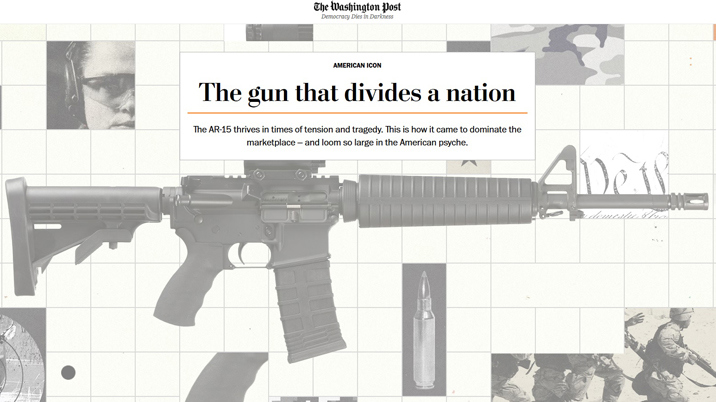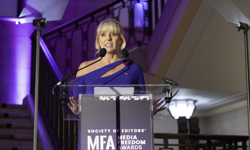
This week, Columbia University announced the winners of this year’s Pulitzer Prizes, widely regarded as the highest accolade in American journalism.
I always find the judges’ citations uplifting and inspirational and for anyone considering a career in journalism, they are essential reading.
They show the impact that diligent, brave, honest and skilful reporting can have, in changing perceptions and, occasionally, the way we are governed.
You can see a full list of winners and citations here, but below are the ones that particularly stood out for me:
- Public Service (ProPublica, for the work of Joshua Kaplan, Justin Elliott, Brett Murphy, Alex Mierjeski and Kirsten Berg): Groundbreaking and ambitious reporting that pierced the thick wall of secrecy surrounding the Supreme Court to reveal how a small group of politically influential billionaires wooed justices with lavish gifts and travel, pushing the Court to adopt its first code of conduct.
- Investigative Reporting (Hannah Dreier of The New York Times): For a deeply reported series of stories revealing the stunning reach of migrant child labour across the United States – and the corporate and governmental failures that perpetuate it.
- Explanatory Reporting (Sarah Stillman of The New Yorker): For a searing indictment of our legal system’s reliance on the felony murder charge and its disparate consequences, often devastating for communities of colour.
- Local Reporting (Sarah Conway of City Bureau and Trina Reynolds-Tyler of the Invisible Institute): For their investigative series on missing Black girls and women in Chicago that revealed how systemic racism and police department neglect contributed to the crisis.
- National Reporting (Staff of Reuters): For an eye-opening series of accountability stories focused on Elon Musk’s automobile and aerospace businesses, stories that displayed remarkable breadth and depth and provoked official probes of his companies’ practices in Europe and the United States.
- National Reporting (Staff of The Washington Post): For its sobering examination of the AR-15 semi-automatic rifle, which forced readers to reckon with the horrors wrought by the weapon often used for mass shootings in America.
- International Reporting (Staff of The New York Times): For its wide-ranging and revelatory coverage of Hamas’ lethal attack in southern Israel on October 7, Israel’s intelligence failures and the Israeli military’s sweeping, deadly response in Gaza.
- Commentary (Vladimir Kara-Murza, contributor, The Washington Post): For passionate columns written under great personal risk from his prison cell, warning of the consequences of dissent in Vladimir Putin’s Russia and insisting on a democratic future for his country.
- Editorial Writing (David E. Hoffman of The Washington Post): For a compelling and well-researched series on new technologies and the tactics authoritarian regimes use to repress dissent in the digital age, and how they can be fought.
- Illustrated Reporting and Commentary (Medar de la Cruz, contributor, The New Yorker): For his visually-driven story set inside Rikers Island jail using bold black-and-white images that humanise the prisoners and staff through their hunger for books.
- Feature Photography (Photography Staff of Associated Press): For poignant photographs chronicling unprecedented masses of migrants and their arduous journey north from Colombia to the border of the United States.
Great work by serious journalists supported by serious news organisations – I think you would be hard pushed to find comparable excellence outside of mainstream media.
You can catch James Evelegh’s regular column in the InPubWeekly newsletter, which you can register to receive here.












